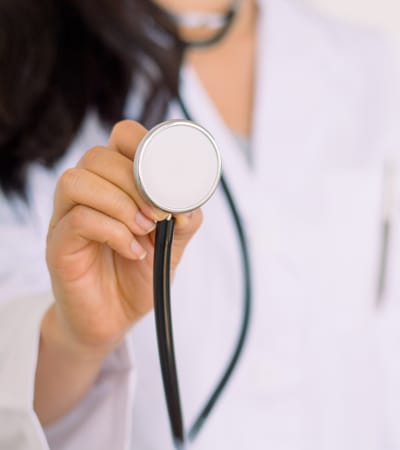Epigastric pain describes discomfort that occurs in the upper portion of the abdomen, just under the ribs. It is usually accompanied by other digestive symptoms, such as bloating. There are numerous potential causes of epigastric pain, and not all of them are serious. Sometimes the cause is something as simple as overeating, whereas other times, epigastric pain can be due to an underlying health condition, like GERD.
When epigastric pain is due to indigestion, a person may also experience burping or bloating, which happens to everyone from time to time but can also indicate a food intolerance. Repeat indigestion accompanied by epigastric pain and an acidic taste in the mouth can suggest GERD.
In more serious cases, epigastric pain may be caused by a health condition like peptic ulcer disease or a gallbladder disorder. In this case, epigastric pain is accompanied by additional symptoms, like fatigue, shortness of breath, or in the case of a gallbladder disorder, clay-colored stools and yellowing of the skin.
Occasional epigastric pain is typically not a cause for serious concern, but if you have ongoing or severe epigastric pain, alongside other troubling symptoms, it is important to consult a doctor to determine the cause and whether you need additional tests or treatments.
Applicable Procedures
EGD
What causes epigastric pain?
Epigastric pain has numerous causes. Sometimes it is as simple as a stomach ache from a big meal. Other conditions, like pregnancy and GERD, can also cause epigastric pain. In some cases, epigastric pain can signify an underlying health condition like esophagitis, gallbladder disorders, peptic ulcer disease, Barrett’s esophagus, or gallstones.
When should I see a doctor for epigastric pain?
Occasional epigastric pain that follows overeating or that is accompanied by bloating and goes away on its own is typically not a cause for concern. On the other hand, if you have severe or ongoing epigastric pain that doesn’t seem to get better, you should see a doctor to determine the cause and explore treatment options. If you have serious symptoms, like chest tightness, difficulty breathing, or coughing up blood, emergency medical treatment is necessary.
How is epigastric pain treated?
Treatment for epigastric pain depends upon its cause. For mild cases that are caused by overeating or indigestion, it can be helpful to simply eat smaller meals and avoid foods that upset your stomach. Antacid medications may also be helpful in some cases. If you have an underlying condition that is causing epigastric pain, your doctor will work with you to determine the best course of treatment. A doctor may conduct testing, such as x-rays or blood work, to identify the cause of epigastric pain.
Common Symptoms
- “After a night of overeating, I woke up with discomfort in the upper part of my stomach, and I felt gassy and bloated.”
- “I was experiencing frequent bouts of upper abdominal pain, along with a burning sensation in my chest and an acidic taste in my mouth. It turned out I had GERD.”
- “Aside from pain in the upper right portion of my stomach, I was suffering from nausea, vomiting, and high fever. It was due to gallbladder inflammation.”

















